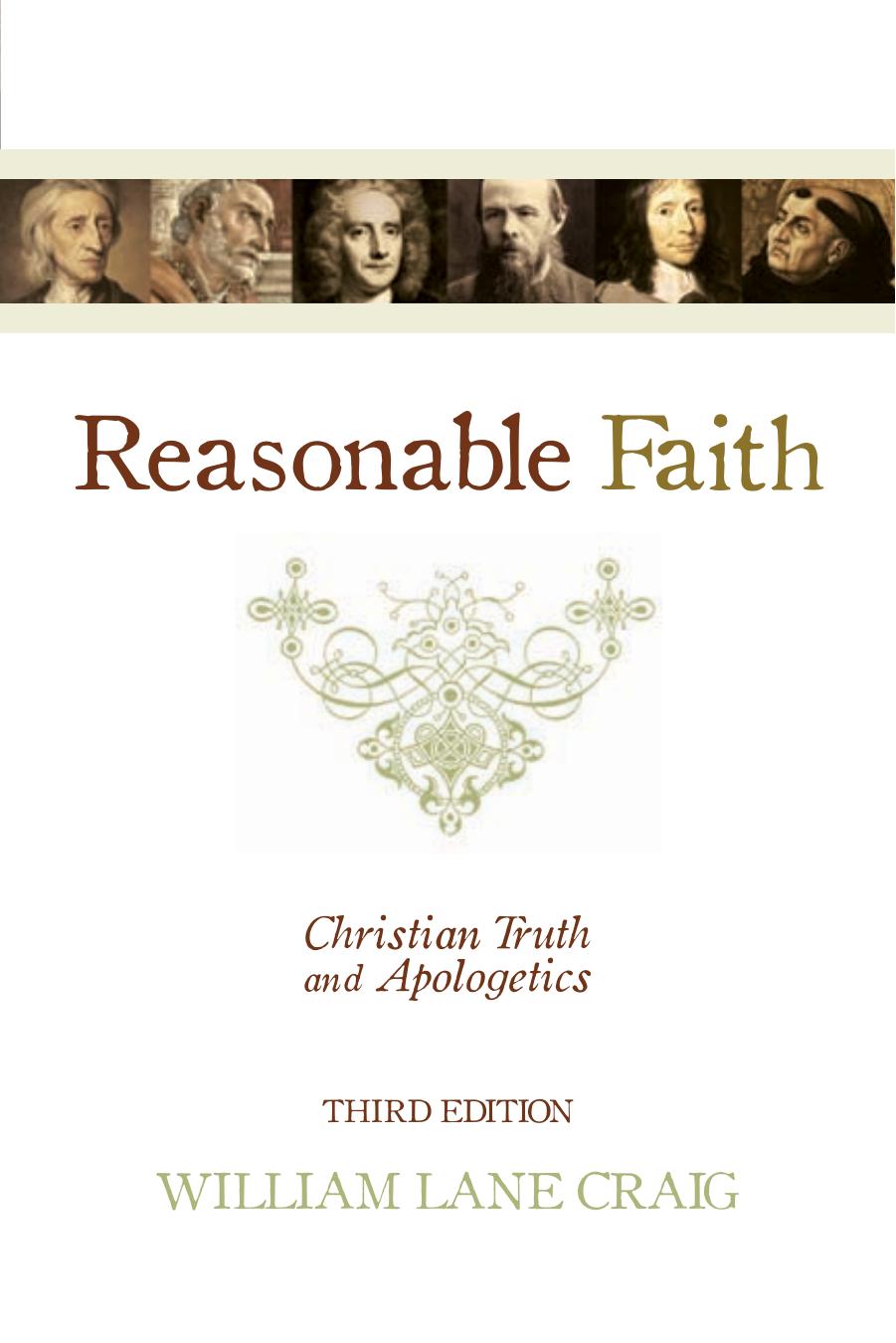Reasonable Faith: Christian Truth and Apologetics by William Lane Craig

Author:William Lane Craig
Language: eng
Format: mobi, epub, pdf
Tags: Religion, Christian Theology, Apologetics
ISBN: 9781433501159
Publisher: Crossway
Published: 2008-06-08T22:00:00+00:00
Let’s move now to the second major objection to our gaining knowledge from
the past: the lack of neutrality. Relativists argue that because we are all shaped by personality and environment, no historian can objectively reconstruct the past. In what I’ve said already we have begun to expose the fallacies of this objection.
When we judge the truth of a historical work, it is not so important how the
knowledge of the past was learned, as what the content of that knowledge is. As the historian Maurice Mandelbaum explains, if we say that a historical work is
false, we say that it is false because it does not accord with the facts, not because of sociological factors surrounding the historian.51 As long as historical realism is correct and historical hypotheses must square with the evidence, then the cultural conditioning of the historian is secondary.
Another way of putting this is that it is not so important how the historian
comes to arrive at his hypothesis as how his hypothesis is tested. So long as it is tested by the objective facts, it is of secondary importance what factors influenced the historian to come up with his hypothesis in the first place. Thus, Morton White emphasizes that although a number of psychological and social factors may influence the formulation of a hypothesis, the historian still has to submit to objective tests that have nothing to do with personality, milieu, or general worldview.52 It 50. R. G. Collingwood, “Are History and Science Different Kinds of Knowledge?” in Essays in the Philosophy of History, 32.
51. Maurice Mandelbaum, The Problem of Historical Knowledge (New York: Harper & Row, 1967), 184.
52. Morton White, “Can History Be Objective?” in Philosophy of History (London: Routledge & Kegan Paul), 1957), 199.
The Problem of Historical Knowledge
235
is the same situation as in science. This is not to say that there isn’t a “logic of discovery” that the scientist (or historian) follows in framing fruitful hypotheses.
The point is that so far as the truth of the hypothesis is concerned, it doesn’t matter how the historian or scientist comes up with his hypothesis—he could have
learned it at his mother’s knee, for all that matters. So long as the hypothesis is tested by the facts, there is no danger of sacrificing objectivity.
In reality, relativists recognize that our knowledge of history is not awash in
subjectivism. For although they deny historical objectivity, they do not really treat history in so roughshod a manner. This is evident in three ways:
1) A common core of indisputable historical facts exists. Thus, one relativist confesses that “there are basic facts which are the same for all historians,” facts which it is
“the duty” of the historian to present accurately.53 Even Becker, while saying that facts have no meaning, admits that “some things, some ‘facts’ can be established and agreed upon”—examples include the date of the Declaration of Independence,
Caesar’s crossing the Rubicon, the sale of indulgences in 1517, Lincoln’s assas-
sination, and so forth.54 The same goes for postmodernist historians.55 Not even the most radical theorist is really prepared to abandon history as a hopeless bog of subjectivism.
Download
Reasonable Faith: Christian Truth and Apologetics by William Lane Craig.epub
Reasonable Faith: Christian Truth and Apologetics by William Lane Craig.pdf
This site does not store any files on its server. We only index and link to content provided by other sites. Please contact the content providers to delete copyright contents if any and email us, we'll remove relevant links or contents immediately.
| Buddhism | Christianity |
| Ethnic & Tribal | General |
| Hinduism | Islam |
| Judaism | New Age, Mythology & Occult |
| Religion, Politics & State |
Cecilia; Or, Memoirs of an Heiress — Volume 1 by Fanny Burney(32558)
Cecilia; Or, Memoirs of an Heiress — Volume 2 by Fanny Burney(31956)
Cecilia; Or, Memoirs of an Heiress — Volume 3 by Fanny Burney(31941)
The Secret History by Donna Tartt(19088)
Sapiens: A Brief History of Humankind by Yuval Noah Harari(14389)
Leonardo da Vinci by Walter Isaacson(13336)
The Radium Girls by Kate Moore(12028)
Sapiens by Yuval Noah Harari(5370)
How Democracies Die by Steven Levitsky & Daniel Ziblatt(5218)
The Wind in My Hair by Masih Alinejad(5095)
Homo Deus: A Brief History of Tomorrow by Yuval Noah Harari(4918)
Endurance: Shackleton's Incredible Voyage by Alfred Lansing(4782)
Man's Search for Meaning by Viktor Frankl(4606)
The Silk Roads by Peter Frankopan(4534)
Millionaire: The Philanderer, Gambler, and Duelist Who Invented Modern Finance by Janet Gleeson(4478)
The Rape of Nanking by Iris Chang(4213)
Joan of Arc by Mary Gordon(4110)
The Motorcycle Diaries by Ernesto Che Guevara(4098)
Stalin by Stephen Kotkin(3965)
